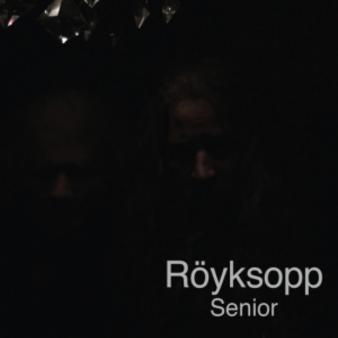Monday, February 28th, 2011 // Paperhouse
So, there’s this hip hop producer in Los Angeles that goes by Bei Ru. He’s doing some magical things.
Similar to many producers nowadays, Bei Ru mixes together chunks of music that would appear to be impossible to hear on the same album. The difference? This guy has one refined sense of taste. His forte lies in mixing contemporary hip hop sensibilities with the obscure soul and funk of the 1970s that he grew up listening to.
Try to imagine Lil Wayne laying down raps on top of laid-back psychedelic funk, and you’re halfway to understanding the splendor of what Bei Ru is doing in Los Angeles.
Last November, Bei Ru put out his album
Little Armeni
, aka
L.A
It is an album that captures, using samples of Armenian music, the sound of a diaspora that settled in Los Angeles. To make this album, Bei Ru searched record stores in Los Angeles, Lebanon, and Armenia for gems from the late ’60s and ’70s. To Bei Ru, the album is an encapsulation of the state of mind created by growing up in L.A. among friends in his family’s own Little Armenia.
The album is the perfect cocktail for the cultural persecution that Armenians around the world have suffered. The work by Bei Ru is particularly relevant because it stands out as a cross-ethnic testament to the greatness of music and an homage to the collective past of Armenians. I’d go so far as to saying that it pulls back the heavy shroud that the Armenian genocide has laid down upon the face of Armenian American culture.
If you’re a fan of the seamless meshes that Blockhead, DJ Shadow, and the Avalanches have created in the recent past, Little Armenia is an album that you simply need to get into your brain.
To hear some of Bei Ru’s productions, visit his YouTube channel Musaler Music. You’ll be glad you did.
-Juan Fernandez
Tuesday, February 22nd, 2011 // Top Ten
- Röyksopp: Senior
- Thunderball: 12 Mile High
- Mogwai: Hardcore Will Never Die, But You Will
- Iron and Wine: Kiss Each Other Clean
- Jason Moran: Ten
- Fujiya and Miyagi: Ventriloquizzing
- Kristin Miltner: Music for Dreaming and Playing
- Maserati: Pyramid of the Sun
- Brad Mehldau: Highway Rider
- Mariage Blanc: Mariage Blanc
Monday, February 21st, 2011 // Paperhouse
On a fateful day in 2002, you played Tony Hawk’s Pro Skater 3. From that day on, Motörhead drilled its beer-spitting, sweaty motorcycle romps into your brain.
Motörhead is pure. Motörhead is consistent. Motörhead is the anthem of every ballistic missile that’s waiting to rip across the stratosphere and ravage cities whole.
Motörhead is the distillation of a sound unbounded. Unlike most bands that haven’t changed their sound in over 30 years, Motörhead’s sound still rings true. Fans flock day in and day out to go see the loud black-clad ensemble. In short, if you like Motörhead, you like everything that the group has recorded in its 35-year existence as a band. The over-the-top umlaut in its name would spell disaster for any other band, but Motörhead pulls it off and makes you think it invented the symbol. When these musicians play their straight-ahead, black leather-clad romps into your brain, the audience knows they’re preaching the faith of rock ’n’ roll.
When on the microphone, Ian Fraser “Lemmy” Kilmister squints at every word he squeezes out of his smoke-clawed vocal chords. I seriously wonder how Lemmy’s vocal chords, like Tom Waits’, have made it through the guttural mayhem that Lemmy has put them through.
Interestingly, he’s been the only constant member of Motörhead through the past 35 years. It is this rotating cast of members that has allowed Motörhead to inculcate its bona-fide grit-rock into the skulls of millions worldwide. Motörhead has become an ethos, and any performance by Motörhead is a channeling of that undefinable hell-raising ethos. Young or old, once you get Motörhead in your veins, it’s there to stay.
So, If you’re ready to listen to that mean, chain-smoking, Yuengling-guzzling, toe-tapping, fist-clenching sound once more, some songs I recommend would include “Mean Machine,” off Orgasmatron; “Blackheart,” off Rock ’N’ Roll; and “Whorehouse Blues,” off Inferno.
-Juan Fernandez

